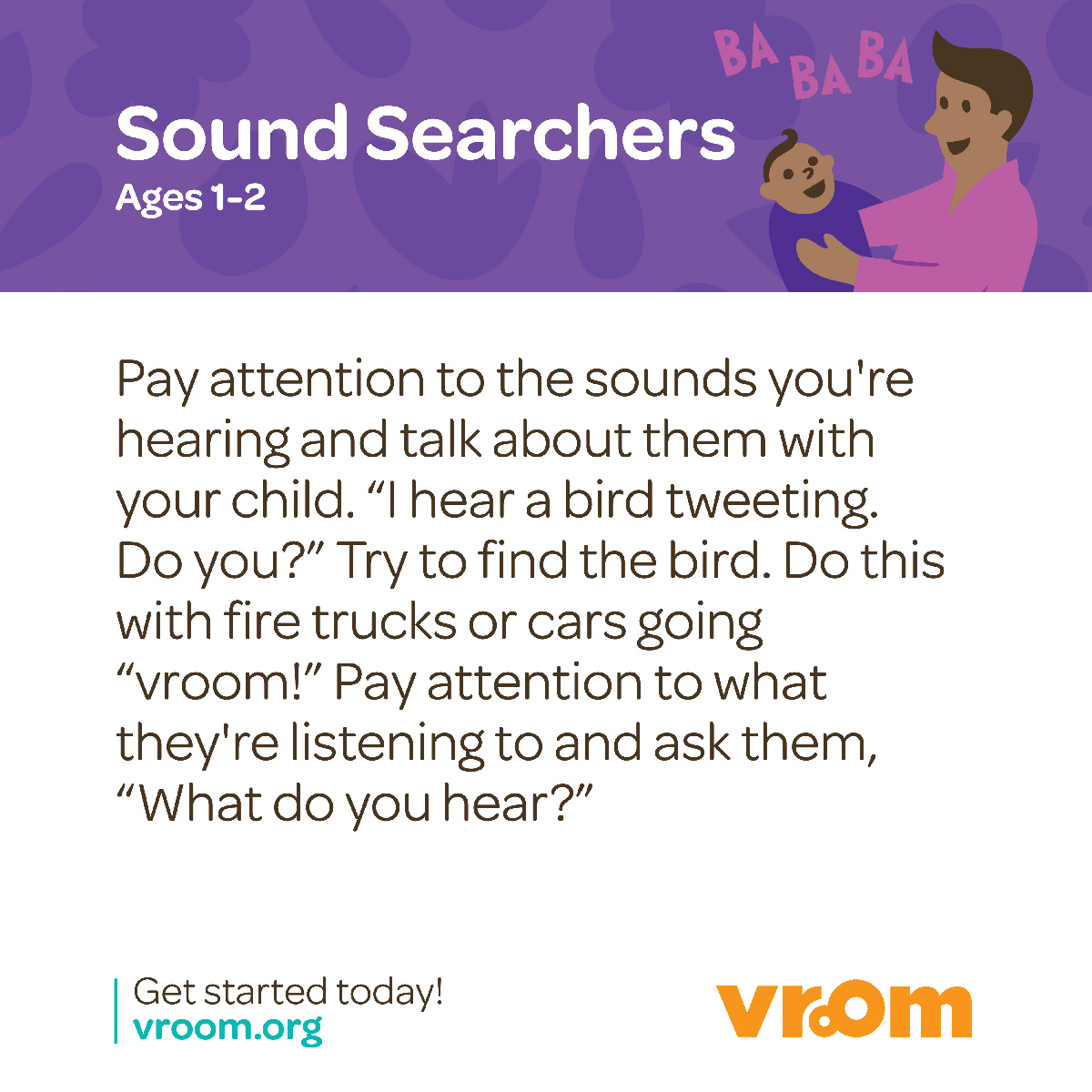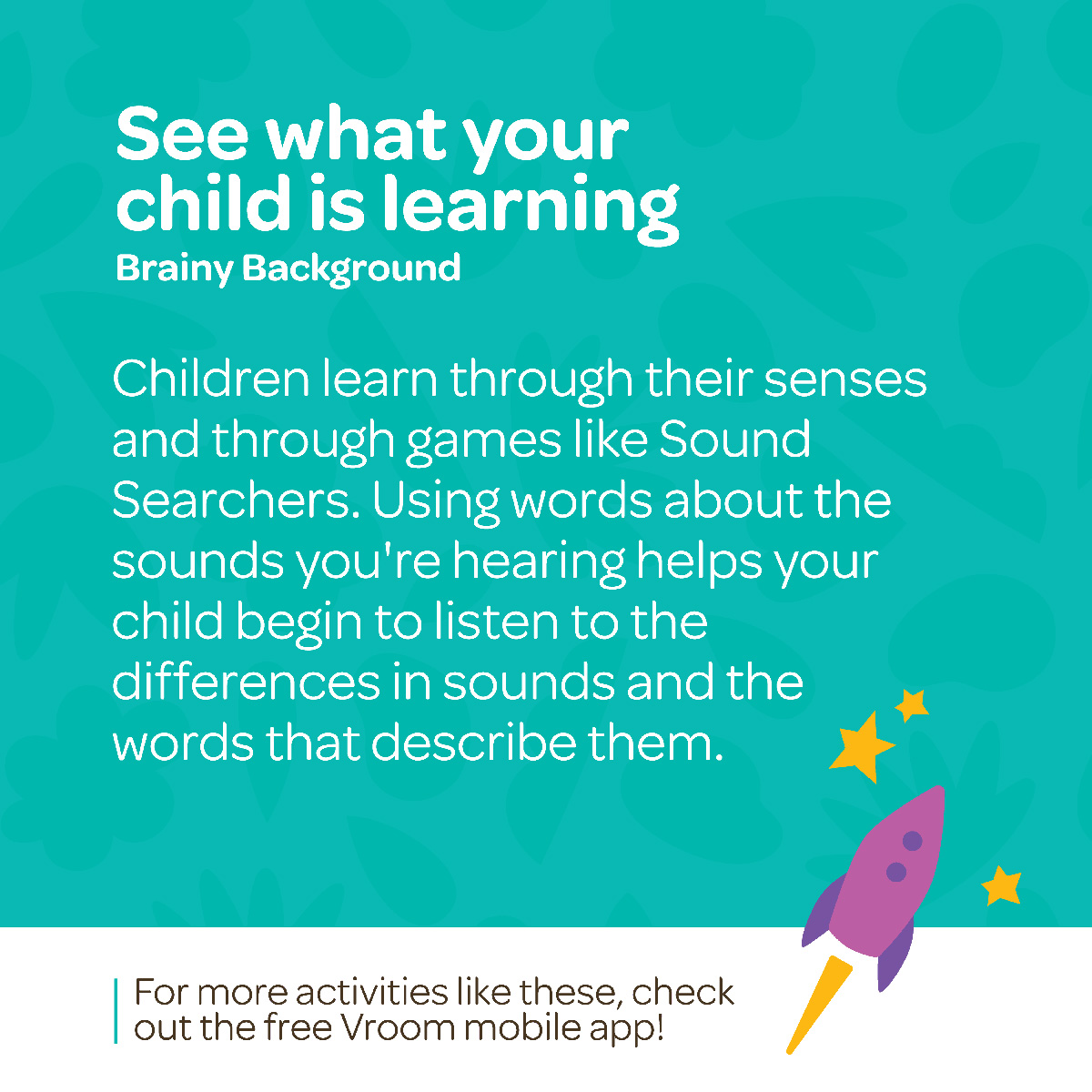Last year, the Centers for Disease Control and Prevention (CDC) suddenly became the federal agency everybody knew about. Responding to global pandemics, however, is only one facet of the CDC. Another of its many lesser-known functions involves providing information to parents and caregivers of young children to help promote health and wellness, and to prevent negative health outcomes for children and families. Recently, the agency collaborated with Vroom®, a program of the Bezos Family Foundation, to support caregivers in promoting their child’s brain development in the first five years, when the brain grows the fastest. Vroom provides 1000+ fun, free science-based tips, activities and tools to inspire families to turn everyday moments into Brain-Building Moments. Each Vroom Tip™ is accompanied by the “Brainy Background”: what your child learns in the activity.
I spoke to Georgina Peacock, MD, MPH, FAAP (Division Director, the Division of Human Development and Disability, the National Center on Birth Defects and Developmental Disabilities) and Anthony Detrano (Vroom, Senior Program Manager) about the project.
All parents, but especially first-time parents without a strong network of relatives or neighbors who have been through this before, can easily become anxious if their babies don’t seem to be progressing at the same rate as other babies on the block. The CDC’s Learn the Signs. Act Early program and the Milestone Tracker app make it easy to track a young child’s developmental milestones.
Vroom, meanwhile, gives parents and caregivers effective, simple ways to promote learning and bonding with their children without needing to buy special toys or take time out of their already busy lives. Vroom has also gone global, reaching more than 1.5 million families through a network of 31 statewide organizations, as well as hundreds of local programs and dozens of national and international collaborations.
👉 Download the Milestone Tracker app: English / Spanish
Learn the Signs. Act Early partners with Women, Infants and Children (WIC) as well as other federal agencies that interact with early care, education and home visiting programs. “We work to integrate these resources into programs that serve young children and families,” says Dr. Peacock. She explains that the program aims to make it easier to identify developmental delays and disabilities. “It promotes developmental monitoring, so children and families can get the services and support they need as early as possible.”
👉 Download the Vroom poster: English / Spanish
Incorporating Vroom, says Dr. Peacock, supports the monitoring of developmental milestones and engagement in development-bolstering activities. “These are both important parts of ensuring the healthy development of all children.” She notes that Vroom complements the CDC program because “both resources activate parents as their child’s best teacher and give caregivers accessible expert information to help them promote and monitor their child’s development.” Supporting informed conversations with early childhood and health care providers is another shared objective.
“During the earliest years of life,” says Detrano, “back-and-forth interactions between a child and caregivers create millions of neural connections in the child’s rapidly growing brain.” Vroom was designed with the realities of busy parents in mind. The Vroom Brain Building Basics—Look, Follow, Chat, Take Turns and Stretch—embeds cognitive development into interactions that happen during shared time. “These foundational interactions,” he adds, “build important learning skills and help ensure that children will have strong and resilient brains. Combining Vroom and Learn the Signs. Act Early gives parents a platform for understanding their child’s development and maximizing their learning in fun and easy ways.”
 Detrano cautions that Vroom is not a diagnostic tool, saying, “While Vroom Tips include suggested age ranges, these are merely recommendations. Every child develops at their own pace, and parents know best if a tip is right for their child.”
Detrano cautions that Vroom is not a diagnostic tool, saying, “While Vroom Tips include suggested age ranges, these are merely recommendations. Every child develops at their own pace, and parents know best if a tip is right for their child.”
 The collaboration came together from the ground up. CDC has at least one Act Early Ambassador in all 50 states, plus D.C. and three territories. These professionals with medical, child development, developmental disability, special education and early intervention expertise support their state’s work toward improving early identification of developmental delays and disabilities. Dr. Peacock says, “We heard from them that many were pairing Learn the Signs. Act Early and Vroom resources. We teamed up to create a poster that promotes both.”
The collaboration came together from the ground up. CDC has at least one Act Early Ambassador in all 50 states, plus D.C. and three territories. These professionals with medical, child development, developmental disability, special education and early intervention expertise support their state’s work toward improving early identification of developmental delays and disabilities. Dr. Peacock says, “We heard from them that many were pairing Learn the Signs. Act Early and Vroom resources. We teamed up to create a poster that promotes both.”
Devon Love—Act Early Ambassador for Washington State and Vroom Integration and Help Me Grow systems manager at Public Health in Seattle and King County—exemplifies the potential of blending the CDC’s program with Vroom. She brings together a wide spectrum of supports for the parents and caregivers in her community. In this video, she explains, “This is what’s so key, that people know about the information but also that there’s somebody back there that they can turn to when they have a question.”
“We are pleased to collaborate with Vroom,” says Dr. Peacock. “We want all children to receive developmental monitoring and screening, as recommended by the American Academy of Pediatrics, and we want children with developmental delays and disabilities to be identified early and connected to the services and support they need as soon as possible.”

Mark Swartz
Mark Swartz writes about efforts to improve early care and education as well as developments in the U.S. care economy. He lives in Maryland.



